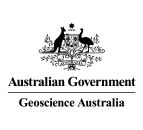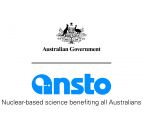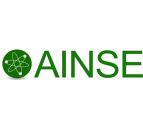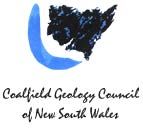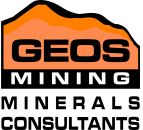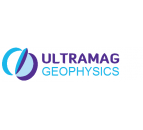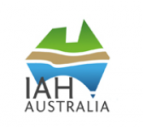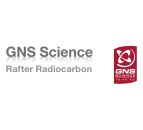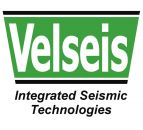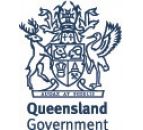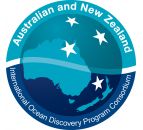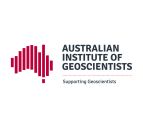GSA AESC
Sustainable Australia 7-10 July 2014
Newcastle, NSW, Australia
Session Details: Infrastructure, Service & Community
Australian Earth Sciences Convention
AESC2014: Sustainable Australia
7-10 July 2014
Newcastle
Tel: +61 2 4973 6573
Fax: +61 2 4973 6609
Email: aesc@willorganise.com.au
http://www.aesc2014.gsa.org.au/
INFRASTRUCTURE, SERVICE & COMMUNITY
The Earth Sciences play a fundamental role in providing critical information to a wide-range of stakeholders within the various
levels of government, industry, organisations and the general public, along with a proud history of education and research.
Infrastructure will address a wide range of issues in the general areas of engineering geology/geotechnical services and critically
covers that important linkage between the Earth Sciences and Engineering. It will cover geotechnical problems and solutions
encountered in recent large infrastructure projects and the role of increasing role of new technologies in investigations. Service
and Community will address the geosciences response to distributed grid computing and cloud storage, dissemination of
Geoscience information in a high-bandwidth environment, the continuing and evolving role of Geoscience outreach and
education, Geohazard studies and their role in protecting the community, the contributions of Geotourism and Geoheritage, and
the historical record and influence of Earth Scientists.
ISC01 Catastrophic earthquakes and tsunami: Towards more effective risk reduction
(ISC01: Earthquake and tsunami risk reduction)
Proponents: Ian Lambert ian.lambert7@gmail.com
Since the disastrous Boxing Day tsunami of 2004, the amount of breadth of research into the processes and complexity of the
lithosphere and related issues that lead to catastrophic tsunamigenic events have increased considerably. This session would
critically appraise whether more action is needed, including in relation to coordination of research and monitoring activities,
systematic field observations (including of paleotsunami deposits), integration of all relevant data, and developing mechanisms
to ensure the best possible scientific advice is marshalled and presented in a timely manner to key government decision makers.
ISC02 Geoscience Education: The evolving role of geoscience outreach and education (ISC02: Earthquake and tsunami risk
reduction)
Proponent: Greg McNamara geoservices@geoed.com.au
A session that will allow educators from Primary, Secondary and Tertiary education sectors as well as public science
communications specialists present their findings relating to new programmes, engagement techniques and emerging
challenges.
ISC03 Geological Surveys: geology databases, online data, digital mapping (ISC03: Geological Surveys)
Proponent: John Greenfield john.greenfield@industry.nsw.gov.au
This session provides a forum for geologists to keep up to date with the latest methods, technologies and techniques used by
Geological Surveys around the world to acquire, store, and deliver regional geological data. The session will also be looking at
new ways of compiling, analysing and interpreting large datasets.
ISC04 Australian Geological Heritage and the National Heritage List; are we being over run by the biologists? (ISC04:
Geological heritage and the National Heritage List)
Proponent: Sue White susanqwhite@netspace.net.au
As geologists we often discuss the significance of various sites and have developed good protocols and methods for the ranking
of sites. However we have not always applied this to specific sites for the National Heritage List (NHL). There has been little
involvement by geologists in listing nationally important sites on the NHL. We also often conflate geological heritage with
geotourism, a related but not identical area of interest.
This session will discuss the potential for the identification and nomination of sites on the NHL, including some case studies of
potential sites.
ISC05 Geotourism - enhancing public appreciation of geoheritage and earth sciences history (ISC05: Geotourism)
Proponent: Angus Robinson angus@leisuresolutions.com.au
Geotourism is emerging as a rapidly growing global phenomenon which fosters sustainable tourism based upon landscapes.
Geotourism promotes tourism to geo-sites, helps to conserve our geoheritage, and provides an understanding of earth sciences
and its history through appreciation and learning. The core focus of geotourism is that it places an emphasis on landscapes and
landforms within which human activity has evolved. Historically the means for enhancing public appreciation of geoheritage and
earth sciences history has been undertaken in a wide range of traditional geosite locations including mined areas, museums,
caves, and protected areas such as national parks. However, the recent development and public acceptance (particularly
overseas) of the geopark concept and the establishment of 16 iconic National Landscape areas in Australia have created exciting
new opportunities for achieving this objective. Moreover, the ever increasing roll-out of digital technologies has identified new
mechanisms for delivering geoscience information to a broad range of consumers including tourists and school groups.
ISC06 Rock Art in Australia
Proponent: Erick Ramanaidou erick.ramanaidou@csiro.au
Australian aboriginal rock art is extremely rich. Caring for and protecting our cultural heritage is paramount so future
generations can appreciate its significance. The petroglyphs are the cultural interfaces between geology and people; they are
the earliest masterpieces. This session will cover both the significance of the rock art and also the complex geological history of
underlying rocks by showcasing the latest research findings.
Joint sessions hosted by other themes:
EV6 Tsunamis and storm deposits in Australia
The Earth Sciences play a fundamental role in providing critical information to a wide-range of stakeholders within the various levels of government, industry, organisations and the general public, along with a proud history of education and research.
Infrastructure will address a wide range of issues in the general areas of engineering geology/geotechnical services and critically covers that important linkage between the Earth Sciences and Engineering. It will cover geotechnical problems and solutions encountered in recent large infrastructure projects and the role of increasing role of new technologies in investigations. Service and Community will address the geosciences response to distributed grid computing and cloud storage, dissemination of Geoscience information in a high-bandwidth environment, the continuing and evolving role of Geoscience outreach and education, Geohazard studies and their role in protecting the community, the contributions of Geotourism and Geoheritage, and the historical record and influence of Earth Scientists.
ISC02 Geoscience Education: The evolving role of geoscience outreach and education (ISC02:Geoscience Education)
Proponent: Greg McNamara geoservices@geoed.com.au
A session that will allow educators from Primary, Secondary and Tertiary education sectors as well as public science communications specialists present their findings relating to new programmes, engagement techniques and emerging challenges.
ISC04 Australian Geological Heritage and the National Heritage List; are we being over run by the biologists? (ISC04: Geological heritage and the National Heritage List)
Proponent: Sue White susanqwhite@netspace.net.au
As geologists we often discuss the significance of various sites and have developed good protocols and methods for the ranking of sites. However we have not always applied this to specific sites for the National Heritage List (NHL). There has been little involvement by geologists in listing nationally important sites on the NHL. We also often conflate geological heritage with geotourism, a related but not identical area of interest. This session will discuss the potential for the identification and nomination of sites on the NHL, including some case studies of potential sites.
ISC05 Geotourism - enhancing public appreciation of geoheritage and earth sciences history (ISC05: Geotourism)
Proponent: Angus Robinson angus@leisuresolutions.com.au
Geotourism is emerging as a rapidly growing global phenomenon which fosters sustainable tourism based upon landscapes. Geotourism promotes tourism to geo-sites, helps to conserve our geoheritage, and provides an understanding of earth sciences and its history through appreciation and learning. The core focus of geotourism is that it places an emphasis on landscapes and landforms within which human activity has evolved. Historically the means for enhancing public appreciation of geoheritage and earth sciences history has been undertaken in a wide range of traditional geosite locations including mined areas, museums, caves, and protected areas such as national parks. However, the recent development and public acceptance (particularly overseas) of the geopark concept and the establishment of 16 iconic National Landscape areas in Australia have created exciting new opportunities for achieving this objective. Moreover, the ever increasing roll-out of digital technologies has identified new mechanisms for delivering geoscience information to a broad range of consumers including tourists and school groups.
ISC06 Rock Art in Australia
Proponent: Erick Ramanaidou erick.ramanaidou@csiro.au
Australian aboriginal rock art is extremely rich. Caring for and protecting our cultural heritage is paramount so future generations can appreciate its significance. The petroglyphs are the cultural interfaces between geology and people; they are the earliest masterpieces. This session will cover both the significance of the rock art and also the complex geological history of underlying rocks by showcasing the latest research findings.
Joint sessions hosted by other themes:
ISC07 Geological challenges on major engineering/infrastructure projects
Proponent: David Och ochd@optusnet.com.au
The application of appropriate geological techniques is a very important approach to minimise potential risks and overall cost on geological challenging engineering projects. Such applications (e.g. desktop studies, 3D geological and structural mapping, geophysics and site investigation) are often critical when planning, designing, and constructing of the proposed infrastructure, as a lack of geological understanding may fundamentally undermine the project's cost, risk management, constructability and serviceability to the community. The session proposed, focuses on the application of appropriate geological techniques and its associated innovative ideas that has been applied on the constructed major engineering projects in Australia where constraints (i.e. cultural, heritage, environmental, constructability, population centres etc.) would have otherwise limited the design and construction of the projects.
ISC08 Developing geological models for engineering projects
Proponent: Kurt Douglas k.douglas@unsw.edu.au
Proponent: Kurt Douglas k.douglas@unsw.edu.au
The geological model should form the basis of any geotechnical project. It fundamentally provides a method to assess geological uncertainties and hence manage project risks. It forms a basis for site investigations, leads to the assignment of geotechnical parameters for engineering design, and aids in understanding the ground-structure response. Despite their value, there is limited definitive guidance in the literature as to how a geological model should be created, developed and implemented. Geologists play the key role in developing geological models. This session looks to explore the philosophy and development of geological models and to provide examples of their successful implementation in a range of different geological environments and projects. Submissions are invited from all areas of geotechnical engineering including, but not limited to: civil infrastructure; resource development & extraction; and geohazard studies.
Latest News
Public Forum
Book
here
(click for more)
AESC 2014
December 2013
AESC 2014 First Circular
March 2013





